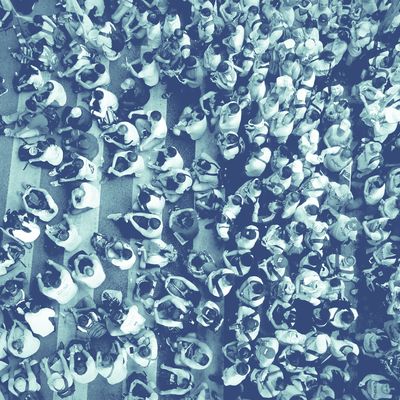
More than a century ago, the French social psychologist Gustave le Bon argued that the power of a crowd was enough to swallow whole a person’s individual identity, leaving behind an easily manipulated shell in a state not unlike hypnosis. Once part of the group, he wrote in his 1895 book The Crowd: A Study of the Popular Mind, rationality was replaced by “impulsiveness, irritability, incapacity to reason, the absence of judgement of the critical spirit.”
And crowds haven’t really recovered from their bad rap since then. More often than not, discussion of crowd psychology include terms like mob mentality, herd mentality, hive mind — things that focus on the group’s hold over people, rather than the people that make up the group. It’s an idea worth revisiting in light of the crowd preparing to descend on our nation’s capital: More than 200,000 people are expected to attend the Women’s March on Washington on Saturday, and social-science research suggests that they’ll experience something quite different than the scenario le Bon described. In protests, members of a crowd can find empathy, community, and a clarity of individual purpose.
You can be part of something larger than yourself, in other words, without losing sight of the self that brought you there. In a 2010 review paper titled “The Social Psychology of Protest,” a team of psychologists argued that protest can be a form of validation, illuminating the stakes of your anger by giving it a human face. “Identification with others is accompanied by an awareness of similarity and shared fate with those who belong to the same category,” they wrote. Or, as writer Amanda Crowell recently put it in Quartz: “Meeting other protesters, hearing their stories, and laughing at each other’s jokes helps individuals feel that their personal futures are intertwined with the group’s fate.”
And that feeling, in turn, can have a ripple effect that lasts beyond when the crowds disperse. For one thing, as Crowell noted, it can jump-start people into subsequent smaller-scale acts of dissent, like calling elected officials. For another, it can be gratifying when your emotions sync up with some broader purpose — a cause for pride, even, in the group affiliation you’ve taken on. And a 2012 study in the Journal of Social Psychology found that pride, even more than anger, is the single most important emotion in terms of predicting future action; people who feel proud after taking part in “collective action” are more likely to keep on working on behalf of that same cause.
All of which is to say, those who argue that the protest lacks a clear mission may just be looking for it in the wrong place. “I have no illusions that this year’s Women’s March on Washington will change Donald Trump’s beliefs,” Ann Friedman wrote recently in the Cut, “but I am certain that it will change the people who show up.” Maybe a march, more than anything else, is for the marchers — that’s valuable in and of itself.




